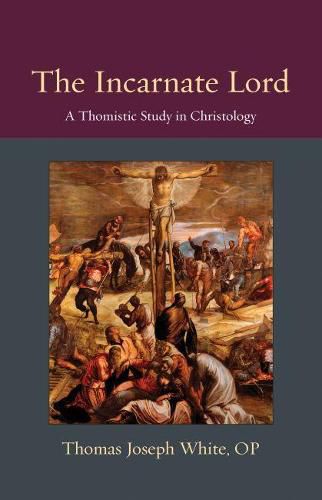Readings Newsletter
Become a Readings Member to make your shopping experience even easier.
Sign in or sign up for free!
You’re not far away from qualifying for FREE standard shipping within Australia
You’ve qualified for FREE standard shipping within Australia
The cart is loading…






In recent years, Thomistic thought has seen a noteworthy revival, especially in the domain of systematic and historical theology. This resurgence of interest in Aquinas’ thought is beginning to significantly affect the shape of academic theology as well as ecumenical theology. Yet there exists no serious study of Thomistic Christology, especially in dialogue with major themes in modern Christology.
The Incarnate Lord, then, considers central themes in Christology from a metaphysical perspective. Particular attention is given to the hypostatic union, the two natures of Christ, the knowledge and obedience of Jesus, the passion and death of Christ, his descent into hell, and resurrection. A central concern of the book is to argue for the perennial importance of ontological principles of Christology inherited from patristic and scholastic authors. However, the book also seeks to advance an interpretation of Thomistic Christology in a modern context. The teaching Aquinas, then, is central to the study, but it is placed in conversation with various modern theologians, such as Karl Barth, Karl Rahner and Hans Urs von Balthasar. Ultimately the goal of the work is to suggest how traditional Catholic theology might thrive under modern conditions, and also develop fruitfully from engaging in contemporary controversies.
The first part of the book, then, examines the ontology of the hypostatic union, the grace and human nature of Christ, the analogical similitude of the human and divine natures of Jesus, and the human knowledge and obedience of Christ. The second part of the book considers the obedient self-offering of Christ, his cry of dereliction, suffering and death, as well as his descent into hell, and physical resurrection. The conclusion of the book provides a systematic reflection on the nature of Christology as a theoretical and historical discipline.
$9.00 standard shipping within Australia
FREE standard shipping within Australia for orders over $100.00
Express & International shipping calculated at checkout
In recent years, Thomistic thought has seen a noteworthy revival, especially in the domain of systematic and historical theology. This resurgence of interest in Aquinas’ thought is beginning to significantly affect the shape of academic theology as well as ecumenical theology. Yet there exists no serious study of Thomistic Christology, especially in dialogue with major themes in modern Christology.
The Incarnate Lord, then, considers central themes in Christology from a metaphysical perspective. Particular attention is given to the hypostatic union, the two natures of Christ, the knowledge and obedience of Jesus, the passion and death of Christ, his descent into hell, and resurrection. A central concern of the book is to argue for the perennial importance of ontological principles of Christology inherited from patristic and scholastic authors. However, the book also seeks to advance an interpretation of Thomistic Christology in a modern context. The teaching Aquinas, then, is central to the study, but it is placed in conversation with various modern theologians, such as Karl Barth, Karl Rahner and Hans Urs von Balthasar. Ultimately the goal of the work is to suggest how traditional Catholic theology might thrive under modern conditions, and also develop fruitfully from engaging in contemporary controversies.
The first part of the book, then, examines the ontology of the hypostatic union, the grace and human nature of Christ, the analogical similitude of the human and divine natures of Jesus, and the human knowledge and obedience of Christ. The second part of the book considers the obedient self-offering of Christ, his cry of dereliction, suffering and death, as well as his descent into hell, and physical resurrection. The conclusion of the book provides a systematic reflection on the nature of Christology as a theoretical and historical discipline.